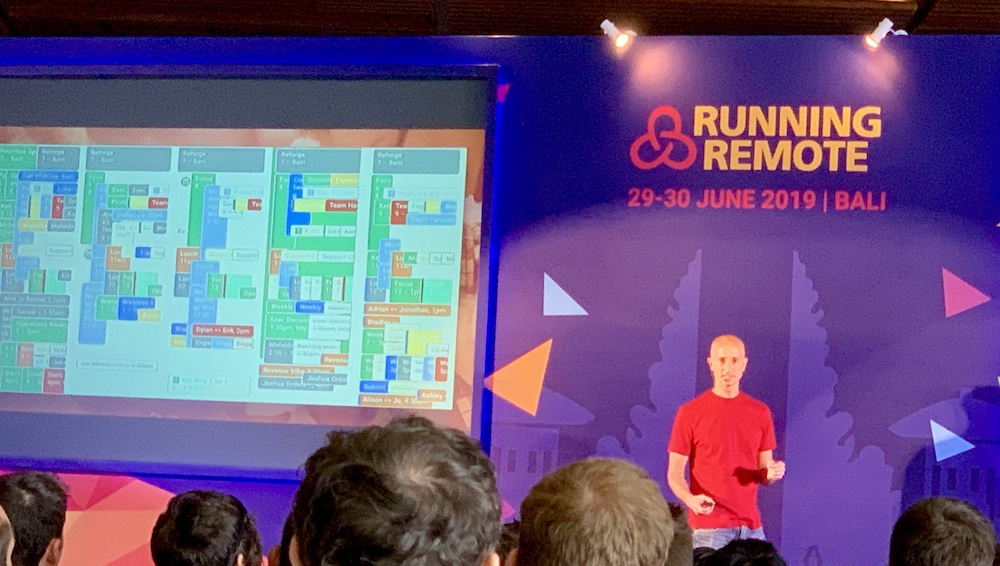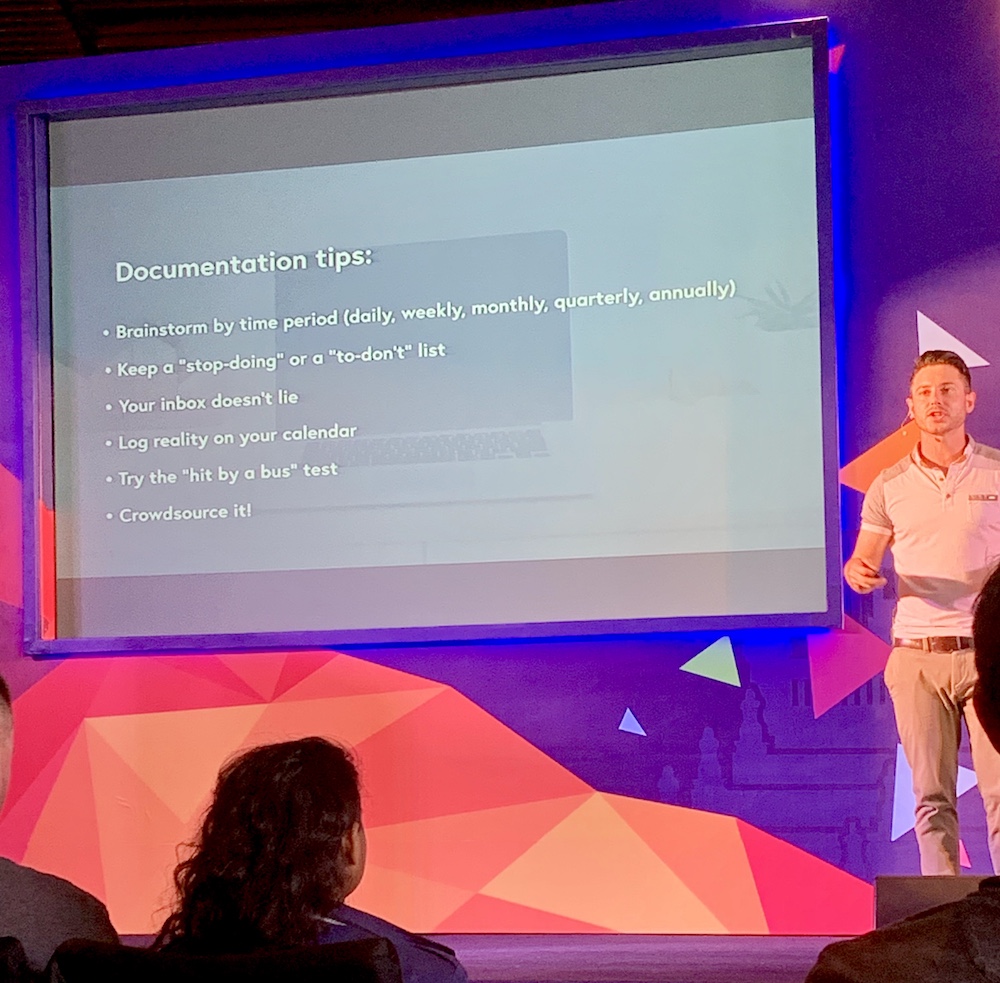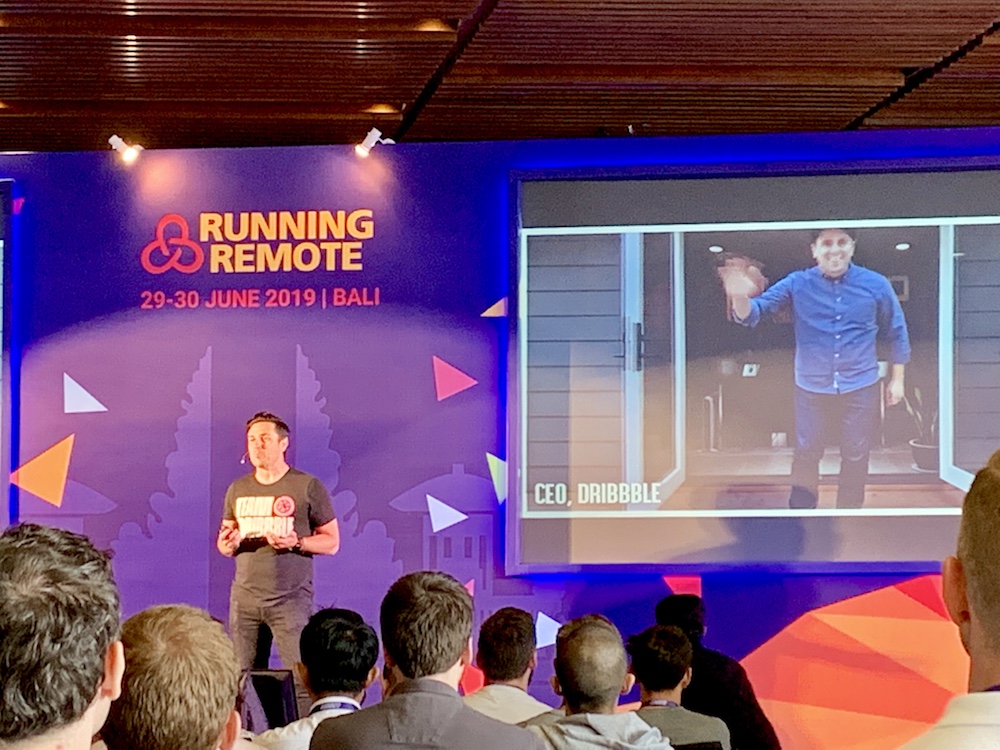3 Lessons for Leaders of Remote Teams: It All Starts With Trust

Last month, I had the opportunity to spend a full month away from Trusty Oak’s Austin, Texas-based headquarters, and wow, was it an adventure! Although part of my time away was meant to enjoy a much-needed vacation in Croatia, three weeks in June were devoted to taking a deep dive into the world of remote work. I spent two weeks working remotely from Hamburg, Germany, one week working remotely part-time from Bali, Indonesia, and capped off the trip by attending a two-day conference for leaders of remote teams.
Running Remote took place in beautiful Bali this year (Running Remote 2020 is happening in Austin!) and leaders from more than 35 countries gathered to share ideas and best practices for running successful remote companies. These two days were packed with information ranging from topics on flag theory and e-residency to software for training teams and ideas for fun team selfie contests. Through all the good ideas, I found three key points that seem to be the common thread through them all.
- Trust and transparency are likely the two elements most remote team leaders feel anxious or unsure about, and rightfully so. Having a culture of trust and transparency is critical to the success of every remote team.
- Don’t cut corners when it comes to developing processes and making documentation of those processes accessible to the entire team. As a founder and/or leader of a remote team, you can avoid burnout by equipping your team with resources to make high-level decisions on their own.
- Don’t forget to have fun, and get creative with ways to help your team members truly get to know each other. There’s still nothing that can replace the benefits of in-person interactions.

Be intentional about creating opportunities for increasing trust and transparency within your remote team.
We heard from Andreas Klinger, Head of Remote at AngelList (and formerly CTO of Product Hunt), Ken Weary, VP of Operations at HotJar, Zack Onisko, CEO of Dribbble, and many more – almost every one of these leaders mentioned in some capacity the importance of building trust.
Some ways you can build trust:
- Develop clear processes and document them well.
- Be diligent about explicit and transparent communication.
- Delegate authority and decision-making (by creating resources for your team to reference).
- Provide team members with an “anonymous AMA” (ask me anything) opportunity to ask leaders questions.
And most of all, leaders, remember that you are ultimately responsible for the level of trust within and across your team and it’s up to you to create an environment where trust can thrive.

Ken Weary, VP of Operations at HotJar shows their “Tetris” calendar problem.
Create standards for communication methods and tools.
In my video about mastering the art of delegation, I talk about how creating tiers of communication can set you up for a more successful partnership with a remote worker, and this point was driven home over and over again throughout the conference. Here are some quick tips for establishing standards for communication within your remote team.
- Never have a meeting without an agenda prepared and shared prior to scheduling.
- Dedicate at least one day per week as a “no meeting day” to allow time for focused work.
- Create a document or resource stating explicitly what communication apps should be used for what and when. Chat apps, email, and Zoom can be disruptive and shut down productivity if team members are expected to respond immediately (or even if they simply feel like they should respond immediately). Determine what apps work best based on the urgency of the matter and the complexity of the topic being communicated.

Trainual CMO, Jonathan Ronzio gave an in-depth overview of Trainual.
Develop processes and provide a way for team members to find answers on their own.
Ken Weary shared how Hotjar creates Google documents explaining each internal process. Anyone including new hires could search through documents to help them perform tasks or follow protocols.
Here at Trusty Oak, we are currently focusing on developing what we call “The Treehouse,” built-in Google Sites. The Treehouse is meant to be a searchable internal website that outlines best practices for various aspects of our business, how-to videos, links to resources, and even lists of team members or vendors with specific expertise. The idea is to provide a single source of truth that any member of our team can access and find answers to their questions without having to interrupt someone else on the team.
Trainual CMO, Jonathan Ronzio gave an in-depth overview of Trainual, a platform making it easy to “get your business out of your brain” and even automate that process of training your new hires or making announcements about new processes.
Whether you use slick software or an old-fashioned Google doc, you’ll benefit from documenting your processes.

Zack Onisko, CEO of Dribbble shares how their team has fun together even remotely.
Don’t forget to have fun.
You can invest in the best software, take the time to document every process, and work on ways to increase trust, but at the end of the day, your remote team still consists of real humans that have real human needs and all of that work alone is not enough. It’s easy to get caught up in the daily grind and only communicate when you need something when you aren’t working in the same room or enjoying a beer together at the end of a hard day, so we have to make an effort to connect and have fun.
Multiple speakers mentioned that they believe virtual teams still need in-person interactions once or twice per year. In between these real-life engagements, it’s important to find ways to have fun and celebrate wins together virtually.
Some ideas:
- Zoom happy hours
- Themed selfie contests (the example from Dribbble was an 8-mile movie-themed selfie contest where team members dressed in hoodies and took their most dramatic selfie and shared it on Slack)
- Online video games
- Remote holiday parties
- Slack channels such as #yelling where team members can vent and type in ALL CAPS or a #pets channel where the team can share photos of their beloved fur children
- Use Donut Slack App to randomly pair team members to facilitate one-to-one connections
The stats show that remote teams have lower turnover rates, which is understandable – remote workers live more flexible lives and therefore are happier overall. One speaker even said one day we will stop calling it “remote work” and just call it “work.” More organizations are moving towards a remote workforce and taking advantage of a larger talent pool, reduced business expenses, and happier employees.
Leading a remote team has its own challenges, but if you are intentional about developing trust, are process-driven, and don’t forget to have fun, the benefits are far greater.


